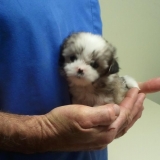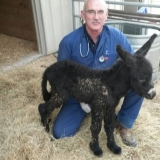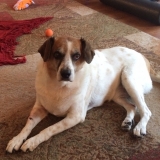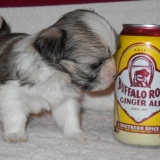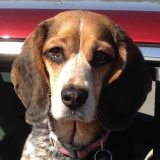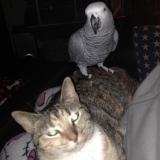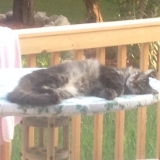Chemotherapy for Pets, Better tolerated than you might think
The two most dreadful words in the English language are often used in the same sentence, cancer and chemotherapy. Both strike the soul with dread and despair. People often speak of chemotherapy as one of the most demanding things they have ever struggled through. So many people know someone who has been through chemotherapy that knowledge of how tough it can be is widespread.
Veterinary oncology has made vast strides in caring for pets diagnosed with cancer. Fortunately, the word chemotherapy does not need to be upsetting. Chemotherapy is the name given to a group of drugs that have the ability to kill cancer cells. The chemotherapy drug recommended depends on many factors including the type of cancer and the general health of the pet.
The big question owners have and the reason that many hesitate to use chemotherapy is the fear that it will make their pets sick. No one wants to compromise quality of life for their pet. The good news is that most dogs and cats tolerate chemotherapy much better than human patients.
Chemotherapy may be given either by pill or intravenous injection. Some chemotherapy drugs, if they leak outside of the vein can be very irritating to the surrounding tissues. For that reason, an intravenous catheter is put in place and the drugs are delivered via the catheter.
Generally, dogs and cats that receive chemotherapy feel like their usual selves the day of treatment. Perhaps 3-5 days later the owner may report that pet isn't quite 100% but within 24 to 48 hours the pet is back to normal. Occasionally, pets may have a strong reaction to chemotherapy and hospitalization with fluid therapy may be needed to help them recover.
Hair loss with chemotherapy is generally minor. Cats may lose their whiskers and curly coated breeds such as Airedales and Poodles may lose more hair than their flat coated counterparts during the early stages of treatment. Spots where hair hair is clipped for surgery or IV catheter placement may grow back very slowly.
After each dose of chemotherapy it is important for the owner to communicate with the veterinarian on any side effects the pet may have had and their intensity. Side effects can include gastrointestinal upset that includes vomiting generally seen in that 3-5 day post treatment window. Other side effects can limit the number of white blood cells made by the body and that can mean increased risk of infections.
When you hear the dreaded word cancer, know that you do not have to dread the word chemotherapy. Chemotherapy can extend a pet's life while maintaining a high quality of life. Talk with us about any concerns you may have about chemotherapy and it's side effects. This conversation will allow you to make an informed decisions about cancer care for your pet.



